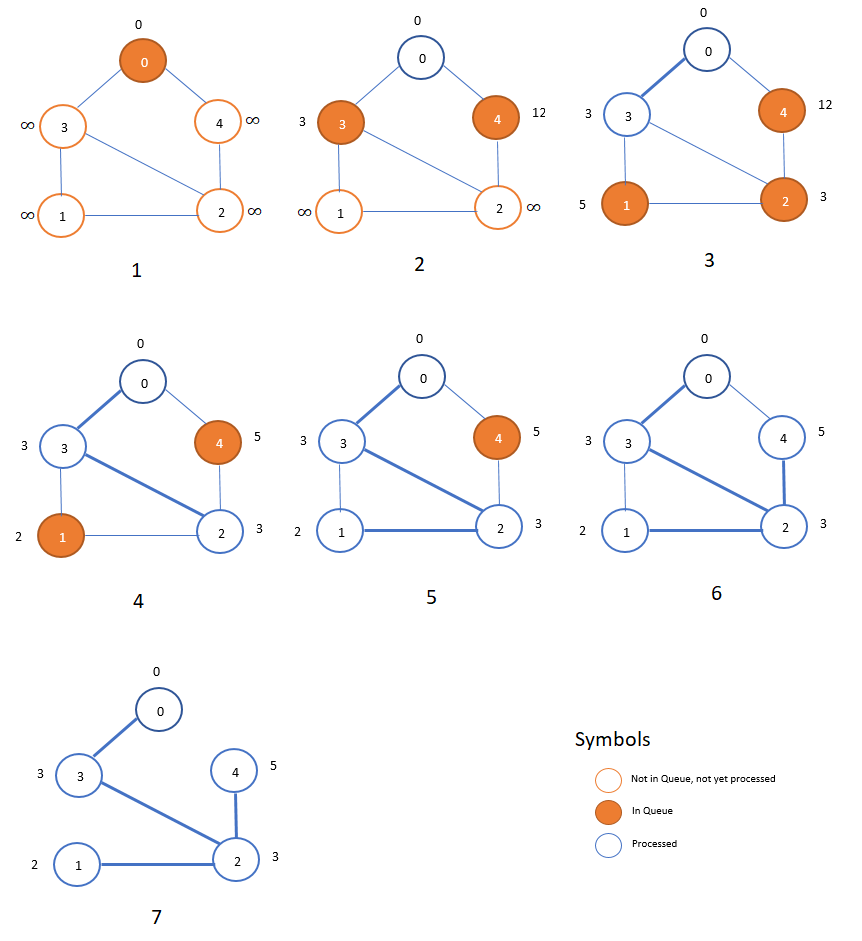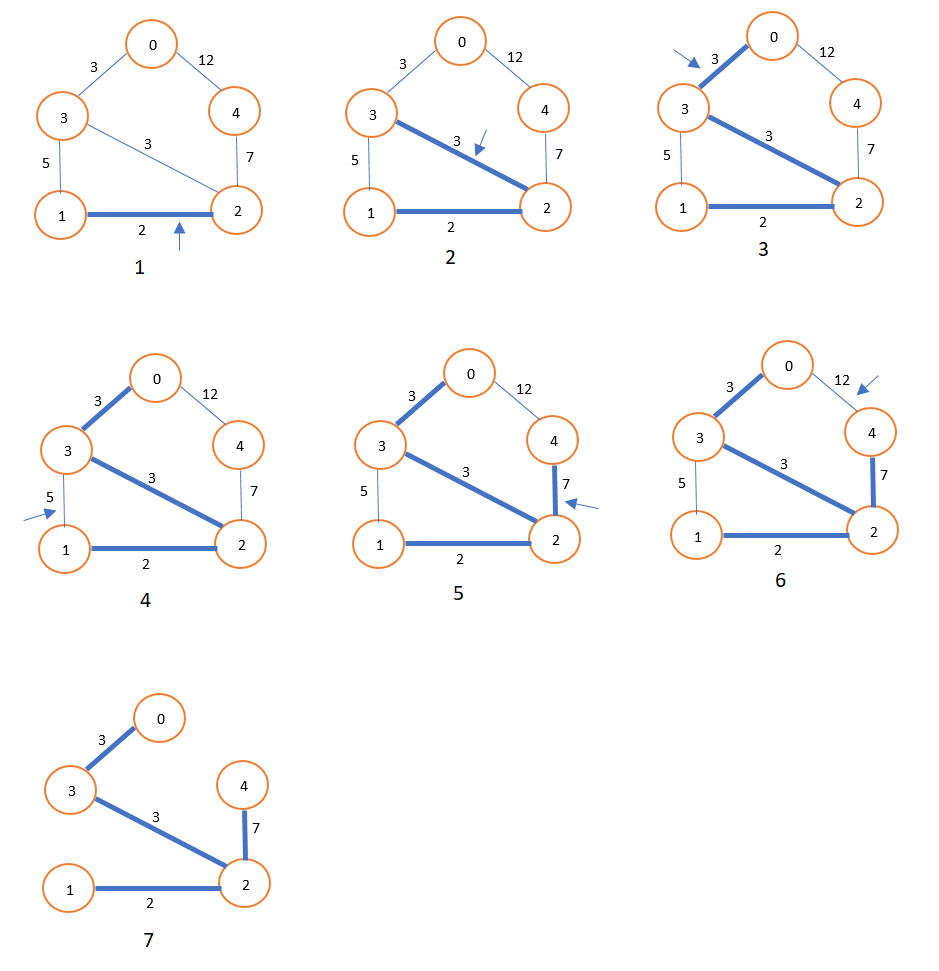Fig 6. Animation showing a minimum
spanning tree (Image by Author)
A minimum spanning
tree is a subset of the edges of a graph that connects all the
vertices with the minimum sum of edge weights and consists of no cycles.
A Minimum Spanning Tree (MST) is a sub-set of edges from a graph G={V, E} which connects all the vertices together. A graph may have multiple spanning trees but a minimum spanning tree has least sum of weight in all possible spanning trees. If there are V vertices in MST then only V-1 edges can be present
Figure 6 is an animation
showing the process of obtaining a minimum spanning tree.
Algorithms
1. Prim’s algorithm
2. Kruskal’s algorithm
Applications
·
Used to
construct trees for broadcasting in computer networks.
·
Used in
graph-based cluster analysis.
·
Used in image
segmentation.
·
Used in
regionalisation of socio-geographic areas, where regions are grouped into
contiguous regions.
1.Prim’s Algorithm:
Ø Create a set that keeps track of vertices already included in MST.
Ø Assign a key value to all vertices in the input graph. Initialize all key values as INFINITE. Assign key value as 0 for the first vertex so that it is picked first.
Ø While set doesn’t include all vertices
§ Pick a vertex u which is not there in set and has minimum key value.
§ Include u to set.
§ Update key value of all adjacent vertices of u. To update the key values, iterate through all adjacent vertices. For every adjacent vertex v, if weight of edge u-v is less than the previous key value of v, update the key value as weight of u-v
Kruskals Algorithm:
The algorithm starts with V different trees
(V is the vertices in the graph).
Every time Kruskal’s alorithm selects an
edge that has minimum weight and then adds that edge if it doesn’t create a
cycle.
When the algorithm is completed, there will be
only one tree, and that is the minimum spanning tree.
There are two ways of implementing Kruskal’s
algorithm:
• By using Disjoint Sets: Using UNION and
FIND operations
• By using Priority Queues: Maintains
weights in priority queue
The appropriate data structure is the
UNION/FIND algorithm [for implementing forests]. Two vertices belong to the
sam
e set if and only if they are connected in the current spanning forest.
Each vertex is initially in its own set. If
u and v are in the same set, the edge is rejected because it forms a cycle.
Otherwise, the edge is accepted, and a UNION is performed on the two sets containing
u and v.



Comments
Post a Comment